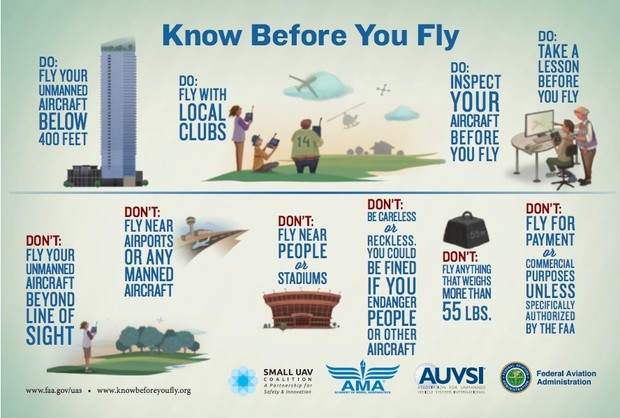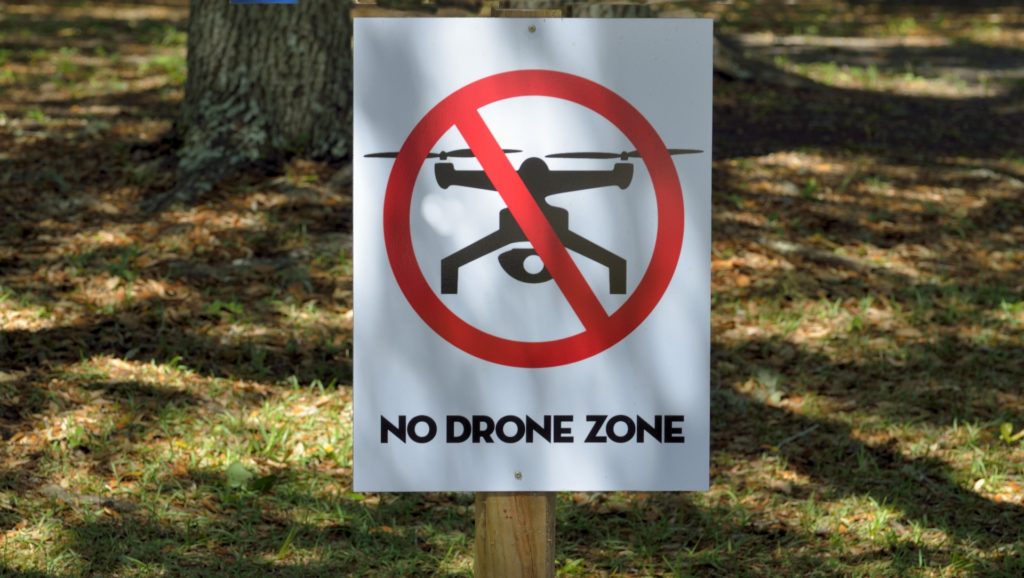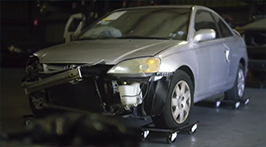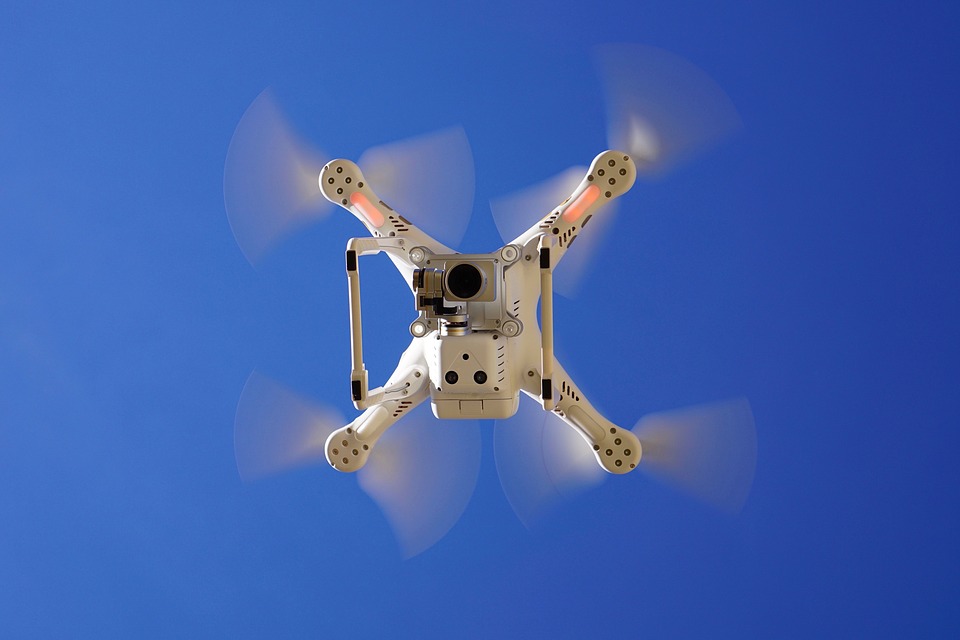Buying a Personal Video Drone? Learn How to Operate it Safely & Legally
U.S. Drone Proliferation Leads to New Regulations
As the skies become filled with drones, or “unmanned aircraft systems” as they are called by the U.S. government, consumers are expected to know all of the intricate laws before taking flight. But because the Federal Aviation Administration’s (FAA) drone regulations continue to shift, it is not always easy for an operator to know if they are breaking the law when they take their unmanned aircraft for a spin.
Despite reports of some quadcopters falling from the sky, including the Karma from GoPro, drones are becoming a popular gift for Christmas. The FAA, who enjoys “exclusive sovereignty of airspace of the United States,” has predicted a sales spike of 2.5 million units in 2016, which they claim will rise to 7 million in 2020. According to a market research company, the NPD Group, drone sales jumped more than 400% since last year.
FAA Drone Regulations & Drone Safety Tips
For many years, drone owners enjoyed a relatively free and unregulated airspace. But that all changed in August 2016 when the FAA announced a comprehensive set of regulations, which outline the federal laws on “small” commercial and recreational drones. As the FAA labored to put together these drone laws, units continued to fly off shelves, including more than a million over the 2016 Black Friday and Cyber Monday weekend.
The lack of an official law before August did not stop the FAA from fining consumers that they deemed to be operating “an aircraft in a careless or reckless manner so as to endanger the life or property of another.” This language, lifted from the regulations that cover aircrafts flown by on-board pilots, was first thrown at a drone operator in 2012, when flying a drone commercially was still considered illegal. Raphael Pirker was fined $10,000 by the FAA for flying his drone in order to capture footage for a University of Virginia sanctioned advertisement. But in a landmark decision, that opened the doors for drones to deliver packages to your home, the court decided that he did not fly in a “reckless manner” or “endanger the life or property of another” and, most importantly, that he did not have to pay a fine for the commercial use of his drone (then deemed legal for the first time).
After making concessions for some commercial drone flights, starting in 2015 the FAA mandated that all drone owners must register with the federal government whether commercial or recreational. Registration costs $5 and requires submitting personal information to a national database. According to reports around 500,000 people have registered since the operation went online last December, but this is well short of the millions of owners that exist across the nation. The penalty, however, is severe. An individual caught flying an unregistered drone can be fined up to $27,500. Once registered, consumers are assigned an ID number and will receive stickers valid for three-years, which can be applied to all of the drones owned by the same individual.

The new regulations outline the laws for small drones that weigh more than 0.55 pounds and less than 55 pounds. Owners of a drone that weighs more than 55 pounds must register via hard copy. All drones must be flown below 400 feet, be kept at least five miles away from airports (unless approval is acquired), and “remain within visual line-of-sight of the remote pilot in command” at all times. The FAA has also put a limit on drone groundspeed (100mph) and mandated that pilots be at least 16-years-old to fly. In addition, drone use is now only sanctioned while the sun is out. (Drones can be operated thirty minutes before sunrise and thirty minutes after sunset, but only with “appropriate anti-collision lighting.”)
No Drone Zones

If an owner wants to use their drone for commercial purposes a certification is now required, but is not needed if all usage is strictly recreational. Because Google and Amazon are using autonomous technology to fly their drones they do not need the certification and many of the latest drone laws do not apply to them. But if you are using a drone to capture images for marketing purposes, obtaining certification is a must to avoid fines.
Consumers should also remember to leave their drones at home when visiting Washington D.C. or any national park in the U.S. because they are banned. The FAA released an app over the summer called B4UFLY that is meant to show drone owners where they are restricted, but consumers on both the Android and Apple platforms, have complained that the app does not function as advertised.
Restricted Airspace; No Drones Allowed
- Prohibited areas
- Temporary Flight Restrictions
- Restricted areas
- Warning areas
- Military operation areas (MOAs)
- Alert areas
- Wildfires
- Airports
- Controlled firing areas (CFAs)
- Major League Baseball
- Major League Football
- NCAA Division One Football
- Nascar Sprint Cup, Indy Car, and Champ Series races
How to Register A New Drone Aircraft
To register your drone under 55 pounds see:
https://registermyuas.faa.gov/
To register your drone over 55 pounds see:
https://www.faa.gov/licenses_certificates/aircraft_certification/aircraft_registry/UA/
To obtain certification for commercial drone usage see:
https://iacra.faa.gov/IACRA/Default.aspx
To learn more about B4UFLY see:
https://www.faa.gov/uas/where_to_fly/b4ufly/
Drone questions for the FAA?
Email them at UAShelp@faa.gov
Are you Ready to Fly a Drone?
Know Before You Fly is, “an education campaign founded by the Association for Unmanned Vehicle Systems International (AUVSI) and the Academy of Model Aeronautics (AMA) in partnership with the Federal Aviation Administration (FAA) to educate prospective users about the safe and responsible operation of unmanned aircraft systems (UAS).”
Are you ready to fly? Take this quiz from Know Before You Fly and test your knowledge:
Approximately 33,000 tire-related crashes occur each and every year, resulting in about...
The Ford C-Max Energi Electric car is being blamed for starting more...
“The findings in this analysis conducted for The Safety Institute are disturbing,...

